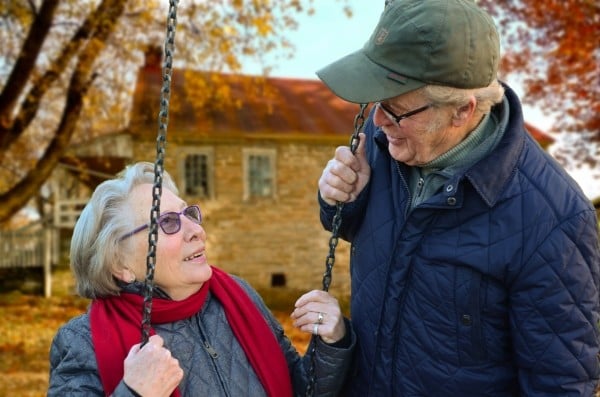
Photo: Visual Hunt
Arts are best way to boost wellbeing in later life
Age UK has called on arts organisations to become more accessible to older people, and on national funders to make ‘age-friendly practice’ a requirement of culture funding.
Engaging with arts and culture gives older people meaningful interaction with the wider world and is the most effective way to improve their wellbeing, new research by Age UK has highlighted.
Focused on creative and cultural engagement, a new report measures how participation in the arts changes with age, revealing that as people grow older they continue to read, but become less likely to visit galleries and historical sites or attend the theatre.
The charity has warned there are barriers preventing older people from doing the cultural activities they enjoy and that arts organisations are losing a large part of their audience. It is calling on local authorities and national arts funders to support arts organisations to become more accessible to those aged 60 and over.
“At Age UK, it is our strong belief that everybody deserves a later life worth living. For many of us, this includes taking part in whatever creative or cultural activity matters to us,” the report reads.
“Creative and cultural participation is important to older people: we need to promote it, enable older people to access it, and increase the opportunities to take part.”
Longer lives better lived
The new research follows on from the charity’s finding last year that out of 40 ‘wellbeing factors’, creative and cultural participation contributed the most to older people’s wellbeing. Its ‘Index of Wellbeing in Later life’ collected data from over 15,000 people aged 60 and over to assess older people’s wellbeing and the factors that contribute to it.
Age UK’s latest research finds the majority (80%) of older people engage with literature, with reading for pleasure and using a library service the most common activities. 71% of older people engage in the visual and performing arts, including visiting museums, the cinema and the theatre; and 68% engage with ‘historical’ activities by visiting historic towns, castles or gardens. However, participation in these activities decrease as people grow older.
Women are more likely to take part in most creative activities than men, in particular dance and crafts. 46% of women aged 60 and over take part in craft activities, such as knitting, textiles and painting, compared with 25% of men.
Barriers and solutions
Engagement in arts and culture was highest amongst those with a high ‘wellbeing score’. Although certain activities were found to be more popular among those at the lower end of Age UK’s wellbeing spectrum, including visiting public libraries and craft activities.
The report notes having more disposable income, access to transport links, and friends to do things with increase the likelihood of older people participating in creative and cultural activities. It suggests differences in creative participation between those with a high and low wellbeing score may be explained by the accessibility of cultural activities.
To this end, the report calls for the protection of communal spaces highly valued by older people, and for arts organisations to work alongside transport authorities and community bodies to make it easier for older people to reach activities.
“Arts organisations should take transport into account in their programming, and consider how they can get their activities out to more accessible locations, including care homes,” the report continues.
It also calls on local authorities to offer smaller grants to support such changes; for local health teams to more formally support creative activities; and on national arts funders to “build requirements for age-friendly practice into their funding rounds”.
The report arrives amidst growing appreciation of the positive impacts of arts and culture on wellbeing. Last year a cross-party parliamentary group called for trainee doctors to study the impact of arts on health, recognising that arts engagement supports “longer lives better lived”.
Join the Discussion
You must be logged in to post a comment.